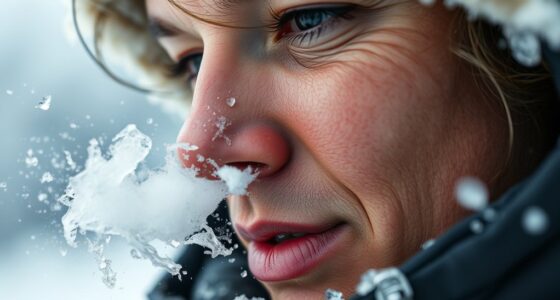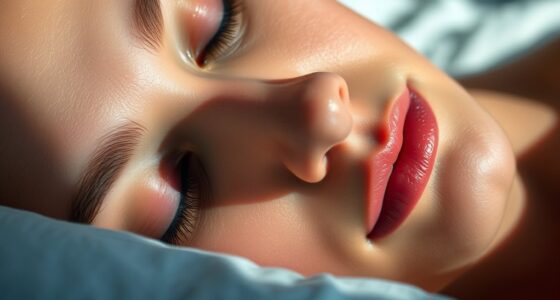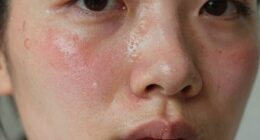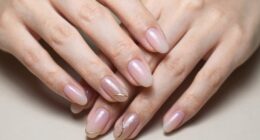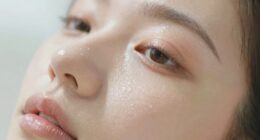Hair hydration and moisturization are key to healthy hair, but they serve different purposes. Hydration adds water to your hair and scalp, keeping them soft, elastic, and healthy, especially for high porosity hair that loses moisture easily. Moisturization seals in that water with oils or creams, preventing dryness and brittleness. Understanding these differences helps you create better hair care routines—stick around to discover how to optimize both for your unique hair type.
Key Takeaways
- Hydration adds water to hair, maintaining elasticity and softness, while moisturization seals in that water to prevent dryness.
- Hydration primarily targets the scalp and hair strands to boost moisture content, whereas moisturization locks in moisture for longer-lasting softness.
- Hydration involves water-based treatments and humectants, while moisturization uses oils and creams to create a protective barrier.
- Hair porosity influences how effectively hydration and moisturization should be applied for optimal results.
- Both processes are essential; hydration prepares the hair with water, and moisturization preserves that moisture to maintain healthy hair.
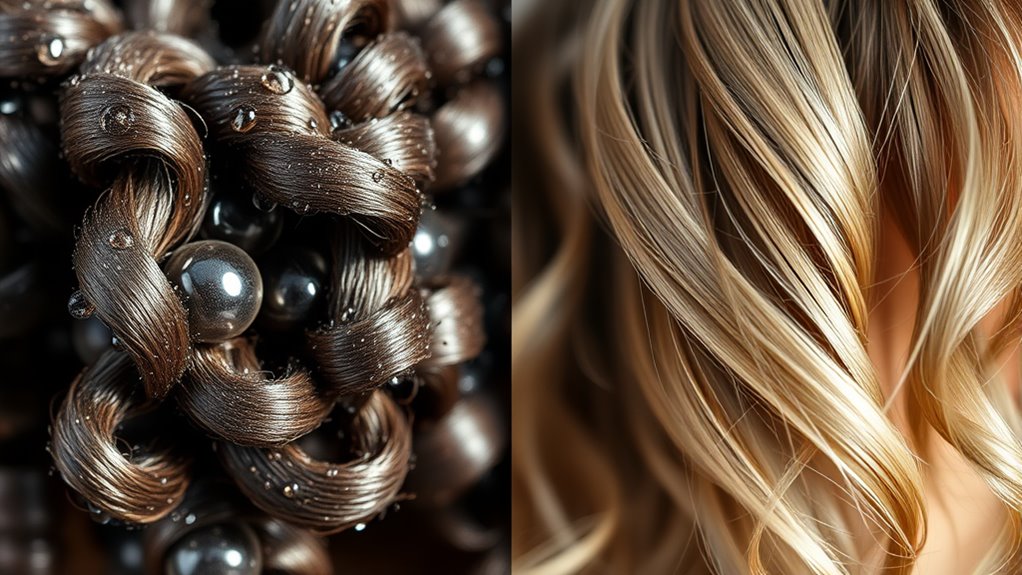
Understanding the difference between hair hydration and moisturization is essential for maintaining healthy hair. When you focus on these two aspects, you’re not just improving the look of your hair but also supporting its overall scalp health and structure. Your hair’s porosity plays a key role here. Hair porosity refers to how easily moisture and oils can enter and exit your hair strands. If your hair has high porosity, it tends to lose moisture quickly, making it prone to dryness. Low porosity hair, on the other hand, resists absorbing moisture, often leading to buildup and dullness. Recognizing your hair’s porosity helps you choose the right products and techniques for effective hydration and moisturization.
Hydration is about adding water to your hair, which is crucial for maintaining elasticity, softness, and scalp health. When your hair is well-hydrated, it looks shiny and feels supple. Proper hydration supports your scalp health by preventing dryness, flakiness, and irritation. If your scalp becomes dehydrated, it can cause itching and dandruff, which can compromise your hair’s foundation. To hydrate your hair, you should incorporate water-based treatments, like rinses or sprays, and use humectants—ingredients like glycerin or honey—that attract water from the air into your hair strands. These methods are especially vital if you have high porosity hair, which tends to lose moisture rapidly. By keeping your hair hydrated, you’re ensuring your scalp remains healthy and your hair stays flexible and resilient. Additionally, understanding your hair’s porosity can guide you toward tailored hydration and moisturization routines that optimize hair health.
Frequently Asked Questions
Can Hydration and Moisturization Be Achieved With the Same Products?
Yes, hydration and moisturization can be accomplished with the same products, but it depends on their ingredient differences and product compatibility. Look for products containing humectants like glycerin or hyaluronic acid for hydration, and emollients such as shea butter or oils for moisturization. Using the right combination ensures your hair stays both hydrated and moisturized, preventing dryness and frizz. Always check ingredient labels to match your hair’s needs.
How Do I Know if My Hair Needs Hydration or Moisturization?
You can tell if your hair needs hydration or moisturization by checking your hair porosity and scalp dryness. If your hair feels dry, brittle, and your scalp is itchy or flaky, you likely need hydration to boost water content. For dull, frizzy hair that lacks softness, moisturization helps lock in moisture. Understanding your hair porosity helps determine the right products—high porosity needs more hydration, while low porosity benefits from moisturization.
Are Natural Oils Effective for Both Hydration and Moisturization?
Yes, natural oils can be effective for both hydration and moisturization, but only if your hair absorbs them well. Many oils, like coconut or argan, penetrate the hair shaft to lock in moisture, making your hair feel softer and more hydrated. However, if your hair resists oil absorption, you might need lighter products. Using natural oils correctly can improve your hair’s overall health and manageability.
How Often Should I Hydrate or Moisturize My Hair?
You should hydrate or moisturize your hair weekly or as needed, depending on your hair type and condition. Incorporate these into your hair treatment routines by layering lightweight products to prevent buildup. If your hair feels dry or brittle, increase frequency; if it’s oily, reduce. Regular hydration and moisturization help maintain healthy, shiny hair, making your routine more effective and tailored to your hair’s unique needs.
Do Hair Types Influence Whether Hydration or Moisturization Is More Important?
Imagine your hair as a sponge, absorbing water differently based on its porosity levels. If your hair has high porosity, it needs more hydration to fill those gaps, while low porosity hair benefits from regular moisturization to seal in moisture. Your hair type definitely influences whether hydration or moisturization is more essential, so understanding your hair porosity helps you choose the right care to keep your hair healthy and vibrant.
Conclusion
Now that you know the difference between hair hydration and moisturization, you’re armed with the knowledge to transform your hair care routine. Think of hydration as quenching your hair’s endless thirst, while moisturization locks in that essential moisture. When you master both, your hair will be healthier than ever—glossier, softer, and more resilient than a superhero’s armor. So, go ahead, give your hair the royal treatment it deserves and watch it shine like never before!




